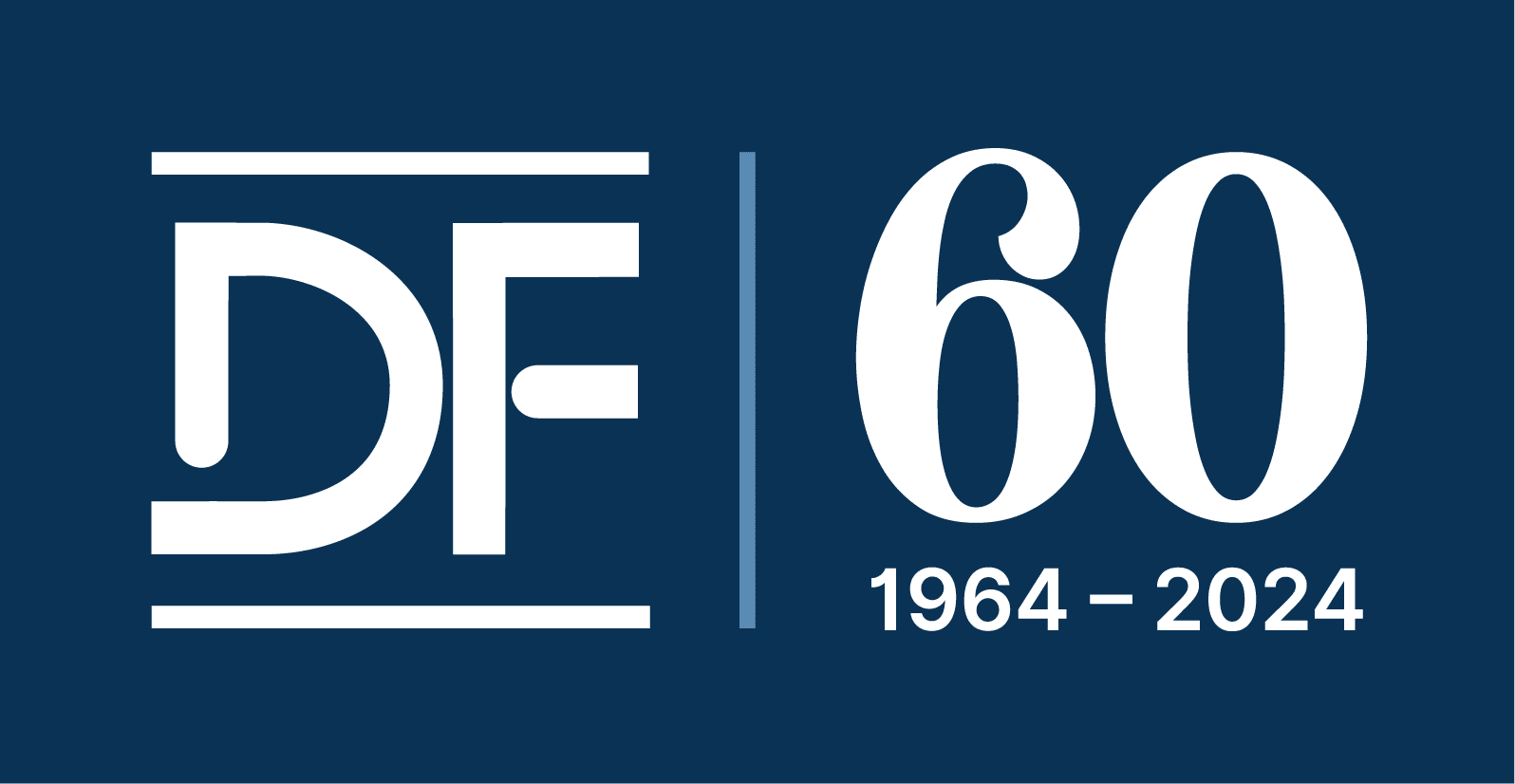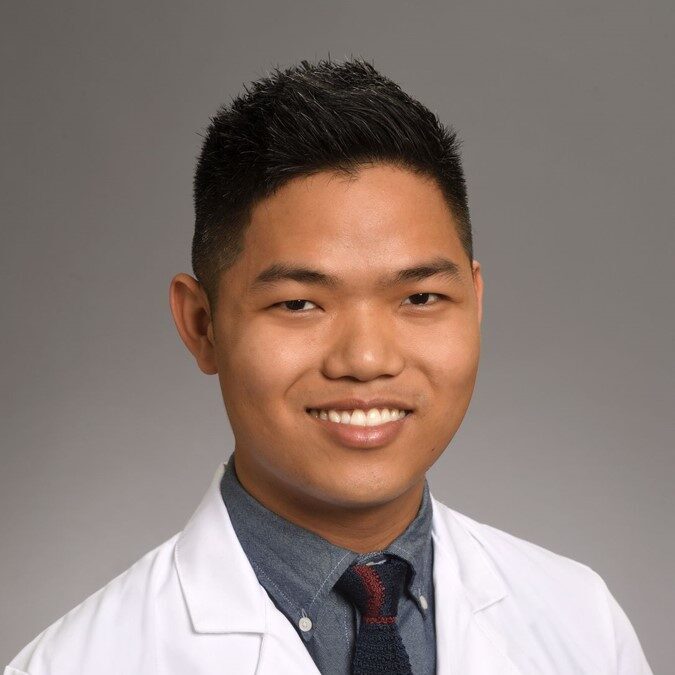
Dr. Yeung received a Dermatologist Investigator Research Fellowship in 2017 from the DF for his research project, ‘Characterization of skin cancer risk factors and screening in sexual minority populations.’ He also received a 2020 DF Science of Human Appearance Career Development Award for his work, ‘Acne Epidemiology and Barriers to Treatment During Gender-Affirming Hormone Therapy.’
Why Understanding Skin Diseases in Diverse Populations is More Important Than Ever
DF: Good morning, Dr. Yeung. How are you?
Dr. Yeung: I am well. I’m glad we get to meet and talk.
DF: Me too! Let’s start with your relationship with the Dermatology Foundation and how it impacted your career.
Dr. Yeung: The first time I was exposed to the Dermatology Foundation was when I attended the Clinical Symposium. I got to meet amazing dermatologists there, and I was inspired by the type of research they were doing and how clinically meaningful it was.
So, when I was a chief resident that year, I applied for a fellowship through the Dermatology Foundation. I received it right after my residency. So literally the day after residency, I was supported by the Dermatology Foundation.
My research was about LGBTQ health—a pretty new topic to the field of Dermatology. I think most people didn’t understand why as dermatologists we would care about this topic. But I pitched my grant to the Dermatology Foundation, and they helped me launch my initial start in studying skin cancers in LGBTQ populations.
DF: What an important launch!
Dr. Yeung: Yes! With that support, I was able to show that gay and bisexual men disproportionately have higher rates of skin cancer, as well as multiple skin cancer risk factors, like indoor tanning, compared to heterosexual men. Back then most people just thought of women when we thought about the risks of tanning. So, it got us wondering about what other populations in our very diverse society might be facing skin cancer that we never even thought about before.
That also helped me get some funding from my own institution through the Georgia CTSA, and an NIH KL2 grant related to that work. I was able to look at skin cancer in veterans with HIV two years after my fellowship. And that was career-launching.
DF: Congratulations! Where did your research lead you next?
Dr. Yeung: I was shifting my research focus a little bit at that point and wondering what other skin issues we hadn’t thought about yet in this population.
A lot of LGBT patients were starting to come to see me at that point, and I noticed that a lot of transgender patients didn’t receive the best care. We didn’t know what happens when people go on hormones and how that would affect their skin. I wanted to understand the connection between acne in transgender persons to the hormonal pathogenesis of acne and other hormonal skin diseases.
So, I applied for a Dermatology Foundation Career Development Award. I didn’t get it the first time, but I got it the second time.
DF: And what did that allow you to do?
Dr. Yeung: It allowed me to use a very large cohort that we developed at Emory to study skin diseases, mostly focusing on acne in transgender and cisgender populations as a comparison.
I’m glad that they were able to see the value of something pretty new that not everyone might appreciate. That was the time when LGBTQ health was federally kind of dicey.
Because the Dermatology Foundation values diversity, they were able to understand how understanding skin diseases in diverse populations can help us understand skin diseases overall.
DF: How did your career in dermatology find you?
Dr. Yeung: I found it during the third year of medical school. It was not on my radar at all, but during my internal medicine rotation, I cared for a lot of patients with severe skin diseases, and that made me interested.
My background is in epidemiology research and health disparities, and I really wanted to see how those things align because it wasn’t intuitive to me.
So, I took a research year off where I was supported by an NIH T-32 grant, and credit my mentor Dr. Joel Gelfand, who was also supported by the Dermatology Foundation in his early career. It was a privilege to work with him because he taught me the importance of public health research, the importance of epidemiology research, and the importance of health disparities research. He showed me how you can add a public health lens and an epidemiology lens to study skin diseases and develop a meaningful career out of that.
DF: Do you see another shift coming now that there are so many more patients who are gender diverse?
Dr. Yeung: Yes. Acne is important in this population—even defining that was one of the major aims of my project. I think a lot of doctors dismiss acne, like, oh, you get a pimple or two, who cares, right? But if you are a trans patient, particularly in the South where I practice, it takes a lot of effort to get the care that you need. There are a lot of barriers. And when you finally get your hormones, you want to continue this important, medically necessary treatment. So, when that hormone causes a skin disease like acne, some people may be afraid to talk about it because they fear their hormones will be taken away.
Understanding the barriers people come through really changes the dynamic of how we should approach skin diseases in transgender people. What if we could have hormone providers start the conversation: “Hey, this is something we expect, and we can help. I know a dermatologist, and this is treatable.”
DF: That would be so powerful.
Dr. Yeung: I am collecting stories from our trans patients to help make the argument to our colleagues, both in dermatology and in other specialties, that we should have a better system to approach and treat skin diseases in our trans patients.
We also published in JAMA Dermatology, and hopefully, that will start the conversation with our colleagues about why this is important. Even though your patients might not talk to you about it, it’s important to them.
DF: What else have you experienced working with this population?
Dr. Yeung: Many people have truncal acne, acne that’s underneath their clothing. And if you don’t see them, you’ll never find out. And a lot of our trans patients might have a lot of dysphoria surrounding their body. They may not want to show you their skin.
How can we find a way that’s acceptable to the patient that still helps them access care? A lot of patients, understandably, don’t trust doctors, because they’ve had a lot of negative experiences with doctors. And so I’m partnering with a lot of our trans patients to show that we can take the research environment to their own home. So in the future we don’t have to just borrow data from cis-gender people, but really develop the evidence about how we treat acne when people start hormones.
And I would even take it a step further, why do we wait to treat acne? In this population, we know when they’re going to develop acne. Part of my current grant is to define the epidemiology, the timing, the risk of people developing acne.
I want to change our conversation so that we don’t just react to acne, but can we potentially prevent it. And so, that would be exciting if we can do this in our transgender patients because if we know how to do it in our transgender patients, we can potentially do it in our cisgender folks.
DF: The work you’re doing is so important!
Dr. Yeung: Thank you.
DF: I just have two more questions. What do you think is one of the most significant impacts the Dermatology Foundation has made in the last 60 years? And where would you like to see them go in the next 60 years?
Dr. Yeung: I think the Dermatology Foundation is at the forefront in creating mentorship and the next generation of investigative dermatologists. I think that can be leveraged to expand diversity in our specialty through programs that encourage medical students from diverse backgrounds to enter the field, and also providing specific funding for early and also mid-career investigators in expanding the scope of dermatology by not just studying the things that historically have been impactful in dermatology but focusing on things that historically have been ignored.
The Dermatology Foundation hopefully will continue to lead the field in showing how research with diverse communities and also research with diverse investigators can help the technology grow as a field.
DF: And what about you? Where would you like to see yourself advance?
Dr. Yeung: I’ll be transitioning my career soon as I’m in year four of my five-year research grant.
I think one of the challenges is that funding does not keep up with inflation, with competition, and it is really difficult for a dermatologist who would have a much more lucrative career outside of research to stay in the field as a researcher.
So, I’m hoping to stay in my dermatology research career and expand our understanding of acne and other standard diseases in our LGBTQ populations.
DF: Thank you so much for talking with us! I am wishing for all the grants to come through for you.
Dr. Yeung: Thank you, it was wonderful talking to you.

